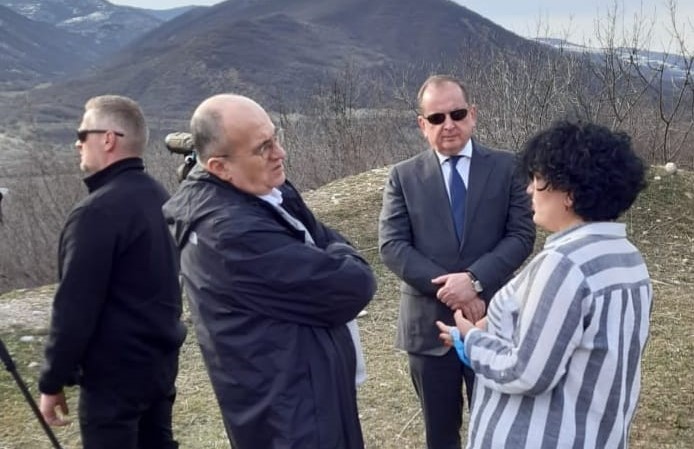The Chairman-in-Office of the Organisation for Security and Co-operation in Europe (OSCE), Zbigniew Rau, Poland’s Foreign Minister, and Marek Szczygieł, the Head of the European Union Monitoring Mission (EUMM) in Georgia, visited parts of the Administrative Boundary Line (ABL) with Georgia’s Russian-occupied breakaway Tskhinvali (South Ossetia) region on Wednesday, March 30.
During the visit, Szczygie briefed Rau’s delegation on the most recent security and humanitarian developments along the ABL, as well as their impact on the everyday lives of conflict-affected people.
Moreover, the EUMM mission chief highlighted the local population’s challenges regarding access to education, healthcare, property, and religious places.
Marek Szczygieł also posted on Twitter that “It was a great honor today to host a Polish Delegation led by @OSCE Chairman-in-Office and MFA @RauZbigniew along the ABL in the Odzisi area. I briefed on the negative impact of ongoing ‘borderisation’ and closure of crossing points on the daily life of the local population.”
It was a great honour today to host a 🇵🇱 Polish Delegation, led by @OSCE Chairman-in-Office and 🇵🇱 MFA @RauZbigniew along the ABL in the Odzisi area. I briefed on the negative impact of ongoing 'borderisation' and closure of crossing points on the daily life of local population. pic.twitter.com/u6QUgenwUz
— Marek Szczygieł (@EUMMGeorgia_HoM) March 30, 2022
Furthermore, as the only international monitoring presence on the ground, for its “consistent contribution to stability” all over Georgia and the wider region.
Poland is the EUMM’s fourth-largest contributor, with 18 Polish individuals actively serving in the mission.
The EUMM is an unarmed civilian monitoring mission that was deployed in September 2008, following the end of the conflict between Russia and Georgia.
The mission’s mandate is valid across Georgia, but the de facto authorities in Abkhazia and Tskhinvali have refused them entrance to their territory.



